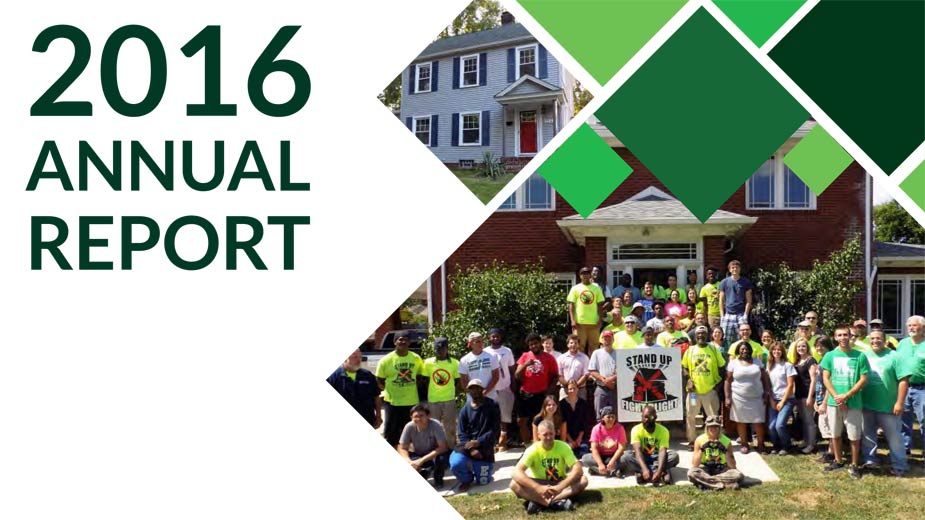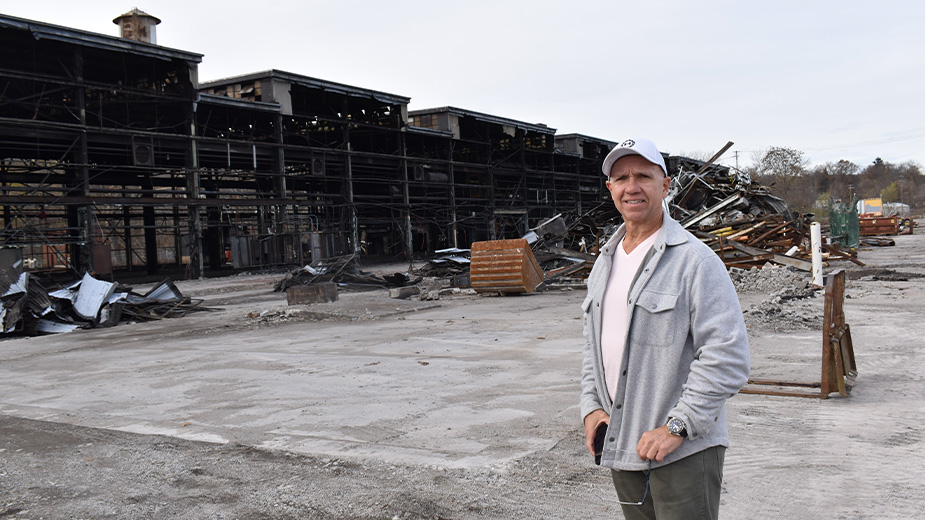YNDC Looks to Build on 2016 Successes
YOUNGSTOWN, Ohio – Ian Beniston wants Youngstown Neighborhood Development Corp. to keep doing this year what it did in last year – but more of it. That means not only increasing the scope of its programs but adding a new one.
Beniston, YNDC executive director, looks to the progress the organization made in 2016 as he charts its course for this year. The “overall volume of the work we completed” last year ranges from the counseling households and small-business clients YNDC to the number of houses either rehabilitated or boarded up and “the infrastructure we continue to build with our partners,” he said.
“I anticipate from the work that we’ve done in 2016 being able to get even more done in 2017,” he said.
YNDC’s annual report, released this week, lists its achievement, which include:
- Grass cutting and maintenance at 2,923 blighted houses — 12,254 mowing efforts, more than four times the total in 2014 the year before when YNDC took over the citywide cutting program.
- Housing and small-business counseling provided to 189 clients.
- The rehabilitation of 23 vacant properties, and 12 rehabilitated houses sold to owner occupants.
- Five microloans awarded to businesses.
- 641 vacant properties cleaned, boarded and secured.
Over the past two years, YNDC has devoted more resources and efforts to improving vacant properties, Beniston said. This year, for example, it expects to renovate “by a significant number a larger number of vacant properties,” he said.
He also wants to see the organization mow more yards and increase the number of mowings as well. “That may seem like a trivial thing, but for someone who lives next to a property with high grass, that makes a big impact,” he said.
For several years, the Youngstown Warren Regional Chamber and Small Business Development Center at Youngstown State University have offered classes to those interested in starting a business and entrepreneurs who just set out in a venture.
Last year, YNDC started offering one-on-one counseling for clients. “We saw that there was a gap,” Beniston said. “There wasn’t really an organization filing that role and we already provided financial literacy and financial counseling to individuals in housing or home ownership, so it was a capacity we already had.”
Some entrepreneurs might have had a good business plan but faced challenges securing financing and other aspects where the YNDC could help them, he continued. Of the 181 individuals who took part in general small-business programs, 48 received one-on-one counseling. Microloans issued ranged from $500 to $10,000.
Among the entrepreneurs who received both counseling and financial help from YNDC is Iba Diaw, owner of Saf Sap Products. His company, in business five years, sells hot sauce that Diaw makes at the Common Wealth Kitchen Incubator on the North Side.
In addition to providing a $10,000 loan, YNDC helped Diaw write a business plan. “They helped me also find a strategy to market my products,” he said. Saf Sap now markets its products nationwide, he reported.
KBC Kidz, a party-planning business that focuses on events for children, also received counseling and a $6,000 loan that it used to buy supplies such as inflatables and rides, reported owner Keyonna Trevathan. The Youngstown business has been operating since 2013.
YNDC “taught us how to build our business credit,” she said, and how to keep that separate from her personal finances, she said.
While it is continuing the counseling program, YNDC is discontinuing its microlending.
“We had difficulty finding qualified candidates,” even with favorable loan terms, said Liberty Merrill, YNDC land reuse director, who also oversees the business education programs. In addition, YNDC has a list of lenders to which it can steer business owners, she said.
“The financial counseling really has been helpful,” she said.
This year, YNDC is launching the Iron Roots Community Supported Agriculture Program, which will allow members to buy fresh produce directly from Iron Roots urban farm and other local growers.
Subscribers will receive fresh vegetables and fruit in season for 20 weeks, from June 13 to Oct. 31.
YNDC added the program after Grow Youngstown discontinued its community supported agriculture efforts, Beniston said. “It’s another way for us to make the produce available and provide good, healthy produce to people here locally,” he said.
Selling produce though a share-supported farming is more “financially stable” than relying on shoppers to buy it through a YNDC stand at a farmers market, Merrill said.
Working with other farmers will allow YNDC to offer more varieties than can be supported in the limited space at Iron Roots, she said.
Copyright 2024 The Business Journal, Youngstown, Ohio.



